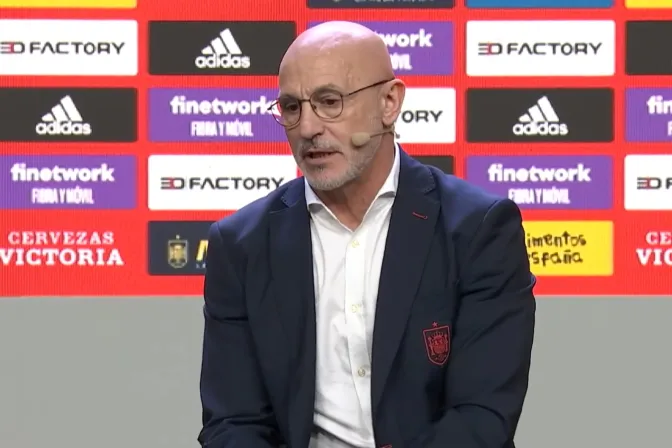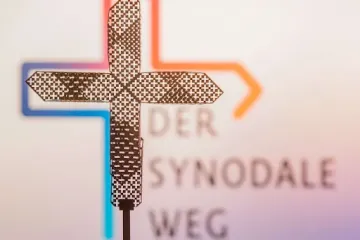CNA Deutsch, Jul 9, 2024 / 16:25 pm
Cardinal Gerhard Ludwig Müller, prefect emeritus of the Congregation — now Dicastery — for the Doctrine of the Faith, condemned a controversial figure displayed in the Linz cathedral in Austria depicting the Virgin Mary giving birth and described it as “advertising for feminist ideology that violates the natural sense of modesty.”
An unidentified person decapitated the figure a few days after it was put on display. The statue bears the title “Crowning,” which can be understood as an allusion to the coronation of the Virgin Mary. However, the term also refers to the moment during birth when the baby’s head can be seen for the first time as it emerges from the birth canal.
The figure in the Linz cathedral explicitly shows exactly this event: the Virgin Mary with her legs spread and the top of the head of the Baby Jesus between them. For reasons of discretion, both television and other media have generally omitted the view between the legs, which was nevertheless exposed for view to all visiting the Linz cathedral.
Meanwhile, the Diocese of Linz told the website kath.net that “the sculpture will remain in the Mariendom art hall until the planned end of the exhibition [July 16], but will not be visible. “The doors are closed, the lights are off.”
Müller told kath.net: “A critique of changing Christian art from being a means of piety into an advertisement for feminist ideology in violation of the natural sense of modesty cannot be pseudo-enlightened countered with the accusation of prudishness or pseudo-theologically as an expression of an ultra-conservative attitude.”
“If a pictorial representation of the birth of Jesus offends believers and causes a division in the Church [between self-proclaimed progressives and those who are reviled as conservatives], the aim of Christian and especially sacred art, which is to express the infinite beauty of God in human works, has been missed,” the cardinal explained.
“A pictorial representation of the mystery of revelation of the true birth of God as a human being must have the aim of strengthening viewers in their belief in the incarnation of God and of focusing on Christ and worshipping him as God and Savior,” the prelate pointed out.
Esther Strauß, the artist who made the figure, spoke out after the attack on the statue, saying: “Most images of the Virgin Mary were made by men and have therefore often served patriarchal interests. Theologian Martina Resch put it well: In ‘crowning,’ Mary gets her body back. Whoever removed the head of the sculpture acted very brutally. For me, this violence is an expression of the fact that there are still people who question women’s right to their own bodies. We must oppose this very decisively.”
In 2021, Strauß took part in an event called “Witch Talks.” The description at the time read: “Esther Strauß is represented with three of her works in the exhibition HEXEN. What the performance photographs and sculptures have in common is that they leave the beaten path of the remembrance, mourning, and commemoration rituals practiced in the so-called West. Instead, risky connections are made with the dead. These delicate relationships that they build take the circle of ancestors and family far beyond Western everyday understanding and lead to a community with a larger vision of solidarity.”
On her website, Strauß describes herself as a “performance and language artist.” She also writes: “In 2016, I dug my grandfather’s grave with my hands and slept in his soil for a night.”
This story was first published by CNA Deutsch, CNA’s German-language news partner. It has been translated and adapted by ACI Prensa and CNA.







